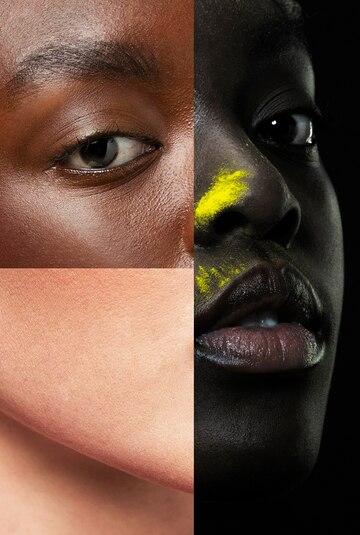South Africa, a nation rich in diversity and cultural heritage, grapples with a complex issue within its entertainment industry — colorism. This deeply ingrained societal problem, rooted in historical and colonial legacies, continues to influence perceptions of beauty and success, particularly within the realms of film, television, and music. This article delves into the prominence of colorism in South African entertainment, examining its origins, manifestations, and the ongoing efforts to address and overcome this issue.
Historical Context:
Colorism in South Africa traces its roots back to the country’s colonial past and the system of apartheid. During this dark chapter, racial classification systems were established, creating a hierarchy based on skin color. Lighter-skinned individuals were often afforded privileges and opportunities denied to their darker-skinned counterparts. While apartheid officially ended in 1994, its effects continue to linger, influencing societal norms and perceptions.
Manifestations in Entertainment:
- Casting Biases:
Casting decisions in South African entertainment often reflect colorist biases. Lighter-skinned actors and actresses may find themselves cast in leading roles, perpetuating the notion that fair skin is synonymous with beauty and success. - Representation in Media:
The media, including magazines and advertisements, often feature lighter-skinned individuals as symbols of beauty and prosperity. This narrow representation reinforces harmful stereotypes and excludes the diversity of South Africa’s population. - Impact on Career Opportunities:
In the entertainment industry, career opportunities can be influenced by an individual’s skin tone. Darker-skinned artists may face challenges in securing roles or endorsements, limiting their visibility and potential for success. - Beauty Standards:
Colorism contributes to the establishment of Eurocentric beauty standards, where features associated with lighter skin are idealized. This not only affects artists but also shapes the expectations placed on the audience, reinforcing harmful beauty norms.
Addressing Colorism:
- Increased Diversity in Casting:
The entertainment industry can take proactive steps by consciously casting actors and actresses of diverse skin tones. This not only reflects the true diversity of South Africa but also challenges preconceived notions of beauty. - Storytelling that Challenges Stereotypes:
Writers and directors can play a pivotal role in dismantling colorist narratives by creating stories that celebrate the richness of South Africa’s cultural tapestry without perpetuating stereotypes based on skin color. - Empowering Darker-Skinned Voices:
Platforms and producers should actively seek to amplify the voices of darker-skinned individuals in the industry. This includes providing opportunities for aspiring talents and acknowledging the unique perspectives they bring to the table. - Promoting Inclusivity and Representation:
Advocacy campaigns and initiatives aimed at promoting inclusivity and representation can contribute to dismantling colorist norms. This involves challenging beauty standards and fostering a more accepting and diverse entertainment landscape.
The prominence of colorism in South African entertainment serves as a poignant reminder of the deep-seated challenges that persist post-apartheid. By acknowledging and actively addressing colorist biases, the industry can play a vital role in reshaping societal perceptions and fostering a more inclusive and representative landscape that celebrates the true diversity of South Africa.








